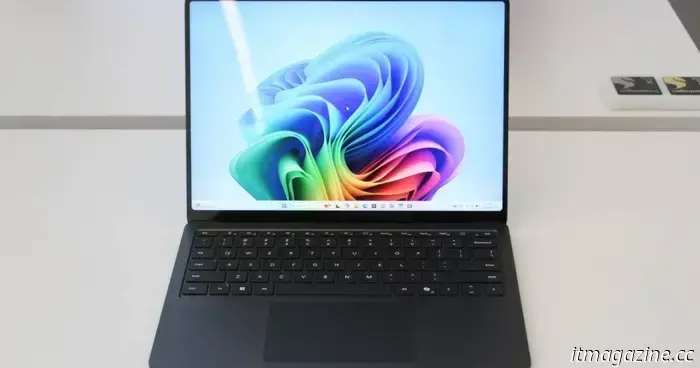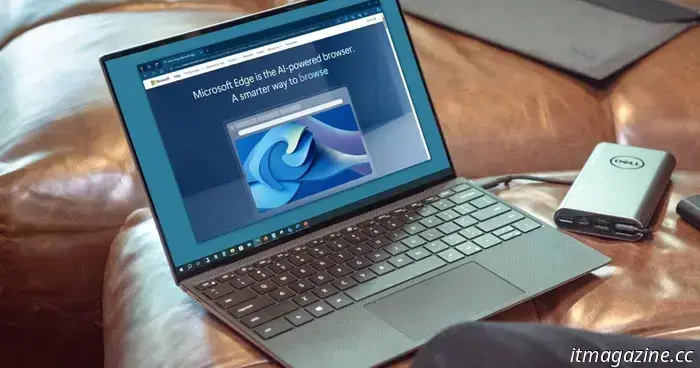
Copilot represents Microsoft's opportunity to enhance Windows and surpass macOS.
There will always be a significant gap between macOS and Windows, largely due to the fundamental differences embedded at the operating system level. If you delve into the intense discussions among users, it often comes down to a clash between seamless operation and flexibility.
For Windows users, gaming remains the primary focus. Additionally, several specialized industry tools continue to be exclusive to the Microsoft ecosystem. Conversely, macOS enthusiasts praise its smooth software, the impressive capabilities of M-series silicon, and excellent hardware.
However, it’s not practical to compare an “entry-level” Apple laptop priced at $999 with a Windows laptop that costs half as much and has entirely different components. In simpler terms, the divide is unlikely to change. Recently, though, a leveling influence has emerged, riding the wave of AI. Some of this is heavily promoted, while other aspects are genuinely beneficial.
AI: From hype to usefulness
Microsoft
Microsoft brands its generative AI as Copilot, while Apple incorporates it within the Apple Intelligence suite. Apple Intelligence on macOS has been underwhelming at best, significantly lagging behind Microsoft’s Copilot.
Currently, those who haven’t integrated it into their workflows aren’t particularly concerned, but businesses are quickly adopting it. Analysts have labeled Apple’s AI initiatives as one of its major missteps to date. Internal management shifts and leaks suggest an atmosphere of unease.
What truly matters to an average user is the experience they have today, and in this regard, Microsoft has a distinct advantage. The company’s Office 365 suite has already been enhanced with Copilot features. The interest is so high that even MS Paint has received AI tools for image generation.
It’s hard to open any popular Microsoft software today without encountering Copilot. Beyond the expected integrations, there are substantial practical benefits to be gained from the AI offerings.
In Word, it acts as a helpful writing assistant for creativity and brainstorming. PowerPoint users can call upon it to create impressive presentations with a simple text prompt, while Excel users find data visualization to be significantly easier. We’re just beginning to explore its potential.
Just weeks ago, Microsoft 365 Copilot introduced an AI Researcher tool capable of scouring the internet and internal documents to compile detailed reports. It can process emails, chats, internal meeting logs, calendars, transcripts, and shared documents to answer your queries.
Outlook and Teams already feature AI agents to automate tasks like meeting summaries and conversation recaps. It can summarize emails, provide translations, and generate to-do lists after meetings. Copilot truly came into its own earlier this month at Microsoft’s AI event, unveiling several innovative updates.
Copilot’s Memory upgrade allows it to retain information and evolve over time. The Actions feature is essentially an AI agent that spares you the hassle of web browsing by managing tasks such as booking tickets or purchasing gifts, with support from services like Expedia, Booking.com, and Skyscanner.
Importantly, Copilot now has Vision capability, enabling it to understand what is displayed on the screen, and if a camera is available, it will also interpret the surrounding environment. “With Copilot, you’ll be able to search, adjust settings, organize files, and collaborate on projects without switching between files or applications,” states Microsoft.
With Pages, Copilot can aggregate all your disorganized notes into one location. It can also convert any material you provide into a personalized podcast, a feature I’ve found remarkably beneficial. Furthermore, Copilot can remotely control your phone from a connected PC.
The truly advanced features include Deep Research and Recall. Deep Research acts like a personal assistant that can create customized research documents, saving you hours of tedious online searching, which I appreciate. Recall, though somewhat controversial, serves as a persistent memory tool that allows you to access your PC activity like a time machine.
Not every feature may prove practically advantageous. However, that isn’t the key consideration, nor is it a realistic target. If you can find one or two useful elements among many, that still constitutes a positive result. Currently, Macs do not offer any of these conveniences natively.
The best macOS integration is presently tied to ChatGPT, and its most beneficial features require internet access. Apple’s Macs are undoubtedly capable, and clearly powerful, but macOS lacks a comprehensive in-house AI package to optimize its functionality. This leads us to…
A hardware upgrade for Windows
A recurring theme in the Windows versus Mac discussion is reliability and performance consistency. This is somewhat accurate, primarily because Apple maintains strict control over both hardware and software. I’ve often found that MacBooks perform more efficiently compared to Windows laptops with similar specs.
On paper, that is. Copilot has given Microsoft a chance to facilitate a performance boost for Windows that can compete with macOS machines, or at least with MacBooks. This advantage lies in the Copilot+ range of PCs, akin to Intel’s Evo badge but created by Microsoft in the AI era.
For a machine to qualify as a Copilot+ PC







Other articles
 NYT Crossword: solutions for Sunday, April 13.
The crossword puzzle in The New York Times can be challenging, even if it's not the Sunday edition! If you're facing difficulties, we're available to assist you with today’s clues and solutions.
NYT Crossword: solutions for Sunday, April 13.
The crossword puzzle in The New York Times can be challenging, even if it's not the Sunday edition! If you're facing difficulties, we're available to assist you with today’s clues and solutions.
 I used a small iPad mini keyboard, and it was quite a confusing experience.
The iPad mini is nearly too compact for a keyboard. However, after using one, you'll discover that it effectively addresses a useful need in your everyday tablet usage.
I used a small iPad mini keyboard, and it was quite a confusing experience.
The iPad mini is nearly too compact for a keyboard. However, after using one, you'll discover that it effectively addresses a useful need in your everyday tablet usage.
 Subaru’s return to the electric market begins now: The Trailseeker EV will make its debut in New York City.
Subaru is teasing the 2026 Trailseeker SUV, the company's second electric vehicle, which is scheduled to be unveiled at the New York International Auto Show next week.
Subaru’s return to the electric market begins now: The Trailseeker EV will make its debut in New York City.
Subaru is teasing the 2026 Trailseeker SUV, the company's second electric vehicle, which is scheduled to be unveiled at the New York International Auto Show next week.
 Marathon, the highly anticipated extraction shooter from Bungie, is set to launch this fall.
Bungie has just provided an extensive preview of Marathon's gameplay along with the eagerly anticipated release date.
Marathon, the highly anticipated extraction shooter from Bungie, is set to launch this fall.
Bungie has just provided an extensive preview of Marathon's gameplay along with the eagerly anticipated release date.
 Why I’m unable to decide between Chrome and Edge, and why I refuse to do so.
Nowadays, there are numerous browsers available to select from, including Vivaldi, Firefox, Chrome, Edge, and others. With such a variety, you might question what sets them apart from one another. Each browser typically has unique features that others lack. From my perspective, no single browser encompasses [...]
Why I’m unable to decide between Chrome and Edge, and why I refuse to do so.
Nowadays, there are numerous browsers available to select from, including Vivaldi, Firefox, Chrome, Edge, and others. With such a variety, you might question what sets them apart from one another. Each browser typically has unique features that others lack. From my perspective, no single browser encompasses [...]
 How to view season 2, episode 1 of The Last of Us: What is the premiere date?
The Last of Us is set to make its return for the second season on April 13. Discover how to view season 2, episode 1 of The Last of Us.
How to view season 2, episode 1 of The Last of Us: What is the premiere date?
The Last of Us is set to make its return for the second season on April 13. Discover how to view season 2, episode 1 of The Last of Us.
Copilot represents Microsoft's opportunity to enhance Windows and surpass macOS.
Copilot presents Microsoft with a unique chance to redefine Windows and provides a robust hardware platform to advance it beyond the Mac competition.
